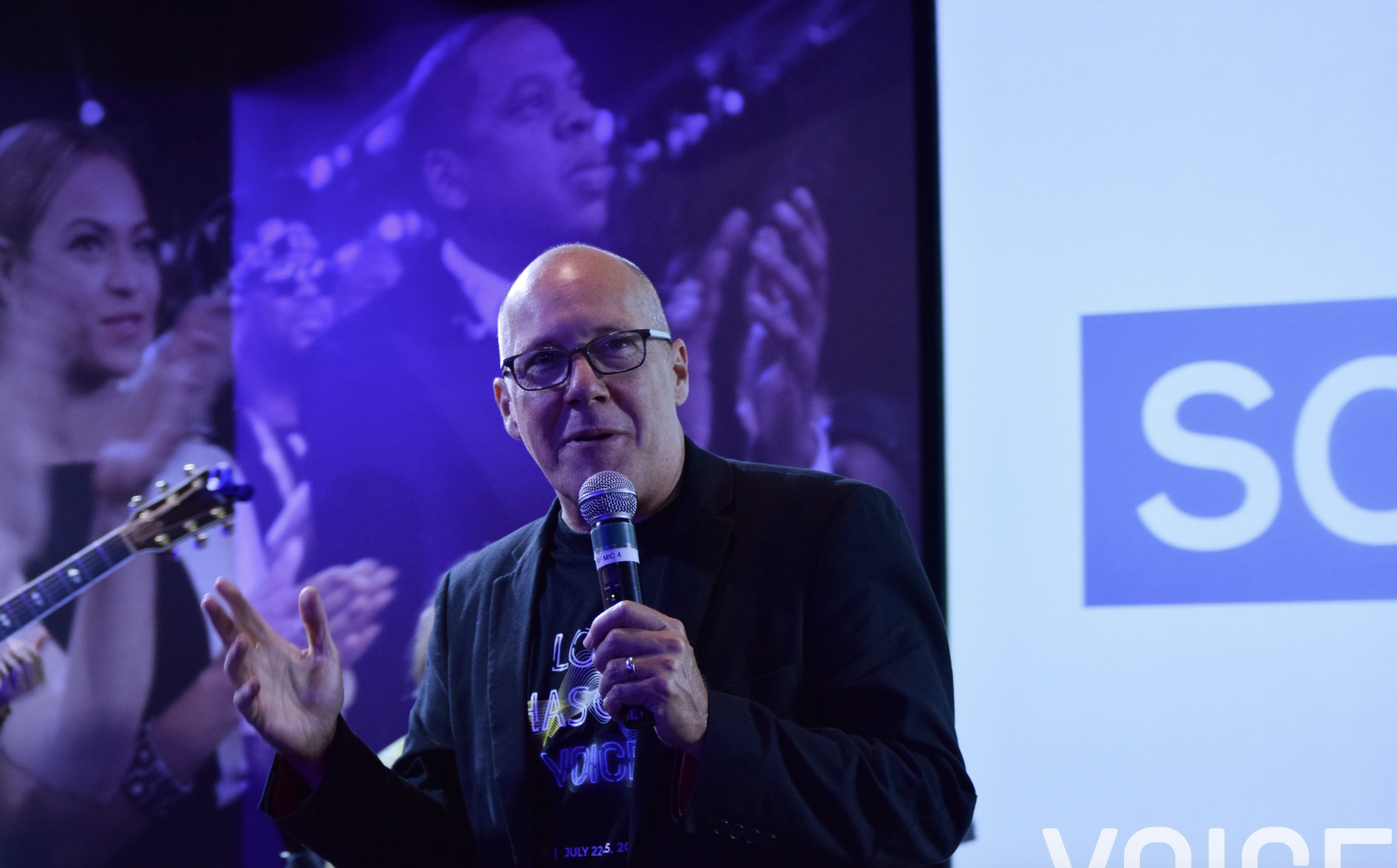It’s hard for Modev CEO Pete Erickson to pick a favorite episode from his virtual talk show, VOICE Talks. But one that stands out — and shows the recent growth of voice software — is an episode that tackled how voice can help with accessibility in tech.
“The reason why we feature these types of developers is because there is such a profound revolution happening for accessibility because of voice and conversational interfaces,” Erickson told Technical.ly. “I’d say it’s not unusual, but I think it’s remarkable.”
VOICE Talks, a monthly, hourlong talk show started by Erickson, covers the latest in voice and AI technologies. Hosted by Sofia Altuna, who works in global product partnership at Google Assistant, the multi-segment show includes live interviews with industry representatives to talk about trends in voice technology.
A year after its start in April 2020, the show now has 140,000 subscribers — a number that Erickson hopes to grow to 250,000 by the end of the year. The show is currently up for a Webby Award for best use of virtual technology (fans can vote for it here).
The show’s anniversary episode, “Best Practices for Designing, Building and Marketing Voice Experiences” debuted on April 29 at 2 p.m.
Erickson said the idea for the multi-segment show came during the scramble for virtual events last spring in the wake of COVID.
“We thought, you know, there’s going to be a flood of virtual conferences hitting the market here this year,” Erickson said. “Why don’t we do something different? So we pitched Google on the idea of doing a talk show.”

Modev, an events and marketing company based in Arlington, Virginia, had plans for an international tour of events and meetups for developers before the pandemic hit, sponsored by Google. When that was no longer possible, Erickson said it felt like he had the right partner at the right time to do the show, which was originally only approved for three episodes. After it hit 13,000 subscribers in the first episode and 30,000 after three, Google renewed the series through the end of the year, and added 10 episodes in 2021.
Erickson said that Modev learned a lot about audience-building for a live show versus a live conference, and that a lot of its previous formulas didn’t necessarily apply to the new venture. But building on the success of the show and Modev’s roots in meetups, VOICE Talks plans to host an event in 2022 in Crystal City that Erickson said is part technology, part festival.
Given his start building meetups in the DMV area, he added that it’ll be a nice homecoming to return to the place where Modev launched, and build on all that he’s learned from the past year.
It's an interface that no major organization can ignore. They have to have a plan for voice.
“One of the things I’ve learned is that people that have never met in person can do extraordinary things together,” Erickson said. “I think with anything, when you do something the first time you learn a ton, so almost every show we apply some learning along the way and perfect the show even more.”
VOICE Talks has covered many trends in voice software, ranging from accessibility to how voice can shape education and entertainment. Erickson intends to continue as the technology grows and expands. He expects voice applications to become even more commonplace as time goes on, with custom applications in cars and brand assistants like Xfinity AI and Bank of America’s Erica, as well as growth in the ecommerce and customer service spaces.
“There is just a large movement in this space, it just looks different than the mobile application space,” Erickson said. “Look, it’s not a ‘developer market’ but it is a large market and it’s really centering around these kind of core spaces.”
He said that even though it looks different than the mobile development rush of 2010 and 2011 in which Modev came to be, voice has become too big to be swept under the rug.
“There were a lot of famous stories of developers getting rich overnight, and that hasn’t happened in the voice text space because it’s not quite the same,” Erickson said. “It’s a new interface, but it’s an interface that no major organization can ignore. They have to have a plan for voice.”







